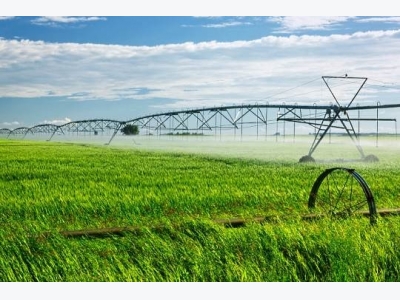Agriculture big contributor to Canadas economy

A new report from Agriculture Canada says agriculture contributed $111.9 billion to Canada’s gross domestic product in 2016, which accounted for 6.7 percent of the country’s total GDP.
The annual report, called An Overview of the Canadian Agriculture and AgriFood System released Nov. 10, provides a summary of the economic performance of the agriculture sector.
Over the last five years, GDP in agriculture and agri-food systems has grown by 11 percent, compared to the Canadian economy, which increased by 7.8 percent.
In 2016, there were 2.3 million people employed in the agriculture sector, representing 12.5 percent of total Canadian employment.
Exports from the agriculture sector rose to $56 billion in 2016. Slightly more than half of the value of primary agricultural production in Canada was exported either directly or indirectly through the manufacturing sector.
The food and beverage processing industry is the largest manufacturing industry in Canada, accounting for 16.4 percent of the total manufacturing sector’s GDP in 2016. As well, it accounted for the largest share of jobs in the manufacturing sector at 17.3 percent.
Farm market receipts remained at a record high of $57.6 billion in 2016. Between 1971 and 2016, these receipts have grown on average by 5.8 percent annually. This was driven by grain and oilseed receipts, which have increased by 6.5 percent annually over the same period.
Net farm operating expenses dropped to $44.2 billion in 2016, down 0.9 percent from the previous year. This was the first decline in six years and was due to lower fertilizer, machinery, fuel and cattle prices.
The federal government spent about $5.4 billion in support of the agriculture and agri-food sector for the fiscal year of 2016-17. This accounts for 24.2 percent of agricultural GDP.
Public funding of research for agriculture was estimated to be at $557 million for the fiscal year of 2016-17
Related news
 Growing crops in greenhouses to promote sustainability
Growing crops in greenhouses to promote sustainability Agricultural plastic waste such as cover films, pipes, trellis twines and more may constitute an environmental hazard when not properly treated after usage.
 Asia Coffee: Vietnam output seen strong on good weather, Indonesia premiums stay
Asia Coffee: Vietnam output seen strong on good weather, Indonesia premiums stay Output of good quality coffee beans in Vietnam, the world's No. 2 producer, is expected to be strong due to favourable weather conditions
 'Big Agribusiness': Ready for Revolution 4.0
'Big Agribusiness': Ready for Revolution 4.0 With cautious preparation and strong potentials, many large enterprises investing in agriculture have been showing positive and ready to get the best out of the